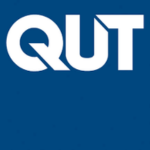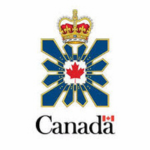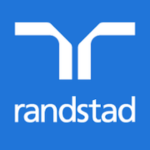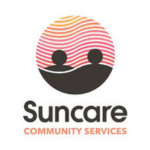eResearch Software Developer
Full TimeBookmark Details

QUT
Job Description
- $94,734 to $103,627
- Fixed-term, full-time
- Gardens Point (hybrid option available)
Who are we looking for?
Queensland University of Technology (QUT) is seeking a eResearch Software Developer to join Research Infrastructure, Research Portfolio, Academic Division.
As an eResearch Software Developer in the eResearch office, you’ll be working on projects that produce real-world research outcomes. This includes working on research projects, solutions to support conducting research, and commercial research applications. The work undertaken by this team is critical to the delivery of eResearch solutions, so the incumbent may be required to be contactable and/or work outside standard business hours. This position reports to the Software Development Team Lead, for supervision, workload management and for Performance Planning and Review (PPR).
We’re offering this role as a hybrid position as part of QUT’s commitment to embracing the opportunities created by a more virtual and connected world.
Real world impact
QUT is a major Australian university with a global outlook and a ‘real world’ focus. We are an ambitious and collaborative institution that seeks to equip our students and graduates with the skills they will need in an increasingly disrupted and challenged world.
About the Research Portfolio
QUT has experienced the strongest, sustained research growth of any university in the sector over the last ten years. The scale and complexity of research at QUT has reached a level that requires enhanced processes and resources to support the University’s research community in meeting its aspirations and compliance obligations.
The Research Portfolio provides high quality support and training and conducts compliance and reporting across a range of obligations at an organisational level in an environment of dynamic growth in cross institutional collaborations.
The Portfolio is comprised of five units including Research Strategy and Policy, Research Infrastructure, Sustainability Strategy, Office of Research Services and Office of Research Ethics and Integrity.
Research Strategy and Policy provides strategy and policy advice and support to the Deputy Vice-Chancellor and Vice-President (Research) in addition to managing and coordinating the activities of the Portfolio Office, providing operational leadership and financial management oversight of the Portfolio’s budget and the University research budget. The Graduate Research Education and Development (GRE+D), in Research Strategy and Policy, supports learning and skills development for all research students and their supervisors, thereby preparing industry and work ready research graduates.
Research Infrastructure (RI) delivers coordinated University-wide research infrastructure capabilities through distinct research facilities. In collaboration with internal and external partners, the unit acquires, facilitates access to, develops, and manages world-class research infrastructure capabilities.
Sustainability Strategy advises the University on sustainability strategy, planning, policy, and partnerships and supports the Deputy Vice-Chancellor and Vice-President (Research) in pursuing major research initiatives in the sustainability space. The Pro Vice-Chancellor’s Office also champions and coordinates education for sustainability at QUT in collaboration with the Education Portfolio and supports sustainability programs linked to QUT’s operations.
Office of Research Services (ORS) works with QUT staff, students, collaborators, and partners to identify, attract and manage funding from competitive and commercial sources. The Office also manages the University’s research management platforms and coordinates internal and external research reporting. The Graduate Research Centre (GRC), in the Office of Research Services, provides support and advice to higher degree research (HDR) candidates and supervisors across the HDR lifecycle including admissions and enrolment, award and administration of scholarships, candidature management and thesis examination.
Office of Research Ethics and Integrity (OREI) supports researchers by providing education, guidance, process and advice for research ethics, biosafety and responsible research practices to embed a high quality research culture at the University.
About Research Infrastructure
QUT has adopted a centralised approach to the delivery of specialised research infrastructure within the Research Portfolio. Research Infrastructure (RI) operates six physical facilities including the Central Analytical Research Facility, Research Engineering Facility, Biorefining Research Facility, Medical Engineering Research Facility, Design Research and Fabrication Facility and the Sanford Ecological Research Facility and three digital platforms including eResearch, VISER and the Digital Observatory.
eResearch capitalises on digital disruption to ensure that QUT delivers on its promise to provide high-impact, transdisciplinary research. eResearch works in partnership with our researchers and end users to develop technological solutions that solve real-world problems. The team works to understand the research question, bring clarity to the technical and socio-technical challenges and apply leading-edge technology to develop solutions that meet the needs of QUT’s stakeholders.
What you need to succeed
Your expertise and initiative, combined with your ability to work as an excellent team player will be vital to your success in this role.
You will demonstrate:
1. Education, training and/or experience equivalent to a degree with at least four years’ subsequent relevant experience.
2. Demonstrated software development and web control experience with web frameworks (like Django, Flask, Express, Spring Boot), relational databases, front-end technologies (like JavaScript, HTML, CSS, React, Angular) and Unix/Linux systems.
3. Demonstrated experience or ability to learn NoSQL technologies and CI/CD tools/pipelines in an Agile Environment.
4. Ability to communicate technical and other information both verbally and in writing.
5. Demonstrated interpersonal skills, including the ability to establish positive working relationships with team members and internal and external clients.
6. Experience in the use issue management systems like Jira to manage work outcomes and deliverables








Share
Facebook
X
LinkedIn
Telegram
Tumblr
WhatsApp
VK
Mail